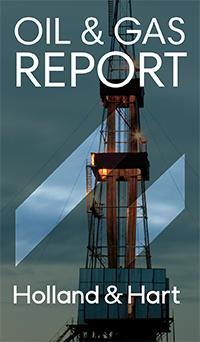On March 26, 2020 EPA issued a temporary policy for enforcement of environmental legal obligations during the COVID-19 pandemic. The policy provides the framework for the agency’s use of its enforcement discretion where COVID-19 related worker shortages and governmental restrictions affect facility operations and impede the ability of regulated entities to comply with EPA requirements. The policy does not extend to Superfund or Resource Conservation and Recovery Act (“RCRA”) corrective actions, which will be subject to forthcoming guidance, or pesticide imports under the Federal Insecticide, Fungicide, and Rodenticide Act (“FIFRA”).
Broadly speaking, the policy states that EPA will forego enforcement of certain civil violations where compliance is not reasonably practicable due to the COVID-19 pandemic, subject to compliance with specified reporting and documentation requirements. The application of enforcement discretion does not apply to criminal violations of environmental statutes and EPA indicates it will distinguish between unavoidable violations that result from COVID-19 restrictions and violations resulting from intentional disregard of legal requirements.
EPA’s policy applies different standards based on the category of potential noncompliance. If compliance with routine monitoring and reporting—such as stack testing, water and effluent sampling, inspections or training—is not reasonably practicable due to COVID-19, entities should report noncompliance using existing procedures as set forth in permit or statute. If such procedures do not exist, facilities must develop documentation and maintain noncompliance information internally. Ultimately, the better a facility’s documentation of how COVID-19 exigencies made compliance reasonably impracticable, the more likely EPA will be to forego enforcement.
The policy likewise provides guidelines for the following situations:
- settlement agreement and consent decree reporting obligations and milestones;
- facility operations impacted by COVID-19 that create an acute risk or imminent threat to human health or the environment;
- facilities suffering from failure of air emission control, wastewater or waste treatment systems, or other equipment that may result in exceedances;
- hazardous waste generators;
- animal feeding operations;
- public water systems regulated under the Safe Drinking Water Act; and
- critical infrastructure.
Regardless of the situation, entities must first make every effort to comply with environmental compliance obligations. If compliance is not reasonably practicable because of circumstances caused by COVID-19, entities must do the following to be covered by the policy:
- Minimize effects and duration of any noncompliance caused by COVID-19;
- Identify the specific nature and dates of noncompliance;
- Identify how COVID-19 was the cause of noncompliance and decisions and actions taken in response;
- Return to compliance ASAP;
- Document the information and actions in 1–4.
Compliance with steps 1–5 is a condition of coverage under the policy.
Effective Period Starting March 13. The policy is retroactive—it applies to noncompliance events occurring from March 13 until the policy is terminated. During the effective period, the policy applies in lieu of otherwise applicable EPA policies. Even after the policy is revoked, noncompliance events that occurred during the effective period will be covered by the policy.
Caution! State Enforcement. The policy applies only to EPA enforcement actions—authorized states and tribes may take a different approach. It is likely that state agencies will issue their own parallel guidance in the coming days and weeks, and permittees should look to those policies in states that have delegated authority to administer environmental programs.
What Is Excluded? The policy does not apply to:
- activities carried out under Superfund and RCRA Corrective Action enforcement instruments, although EPA indicated that separate guidance will be issued to address these programs;
- pesticides and related imports;
- requirements for preventing, responding to, and reporting accidental releases of oil and hazardous substances;
- on-going enforcement matters.
This article was authored by Emily Schilling, Ashley Peck, Chris LeCates, and Hayley Siltanen.
We encourage you to visit Holland & Hart’s Coronavirus Resource Site, a consolidated informational resource offering practical guidelines and proactive solutions to help companies protect their business interests and their workforce. The dynamic Resource Site is regularly refreshed with new topics and updates as the COVID-19 outbreak and the legal and regulatory responses continue to evolve. Sign up to receive updates and for upcoming webinars.
